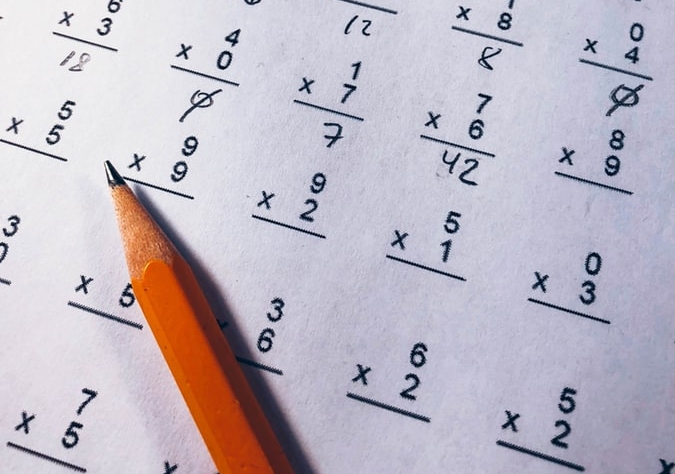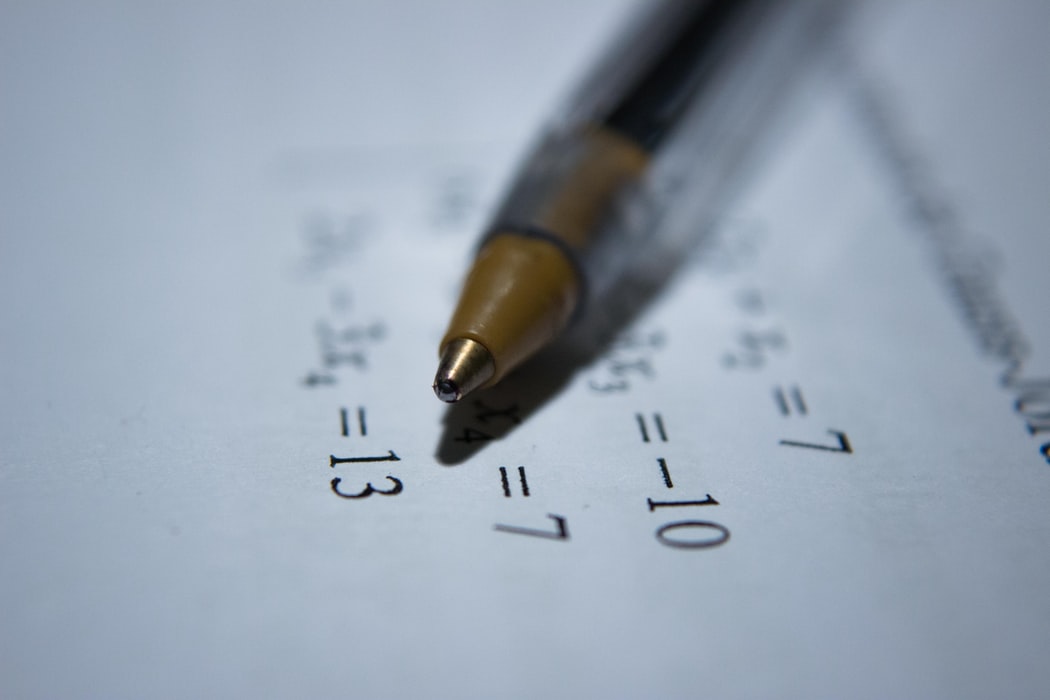Before you can begin deciding how to invest your money or how to run a business, you need to be sure that you have the underlying numeracy skills required to make the right decisions. While we spend many hours of our younger lives learning different elements of mathematics, we can still sometimes struggle with the basics.
This is nothing to be ashamed off, as more people than you think could do with a little helping hand with their maths. So if you’re looking to start managing your finances better, here is how you can improve your numeracy skills.
Take Your Time
It’s important to not stress yourself out when learning any new skill, and this includes numeracy. Everyone has their own pace that they find it comfortable to learn at, and you should not try to compare yourself to others.
Rushing through calculations can also lead to making silly mistakes that you would not have made had you spent a little bit more time and care on the question or calculation.
Believe in Yourself & Don’t Let Mistakes Put You Off
We all make mistakes. This doesn’t reduce our ability level, it just means we are human. Mistakes provide you with opportunities to improve your learning, and you should treat them as such. If you believe in yourself, nothing will be able to stop you.
Playing Games
Playing games is a proven way to help people learn subjects in a fun and interactive way. For improving your numeracy skills, learners have many choices of famous games that can help them learn to add and subtract without it being too taxing. Classic games like snooker and darts are fun to play with friends, and give you different sets of numbers you need to add up.
For example, in snooker, each colored ball is worth a different amount, so you must add these together as you pot them. In darts, each section of the board is worth a different amount of points. There are then also double and triple score zones which can help you practicing multiplication without it getting too daunting. If you find you aren’t very good at playing, you can still watch dart games either in person or on TV. Looking at darts betting odds can also help you to get a better understanding of probabilities and fractions. This will help to give you an understanding of which fractions hold a higher value, as they can be counter intuitive to regular, whole numbers. It will also help you to use the odds to calculate the probabilities of different outcomes of a darts match.
If you prefer your entertainment to be a little more sedate, then you still have options. Games like Scrabble and Monopoly can be fun ways to practice basic addition, subtraction and multiplication. If you’d rather play games alone, then there are mobile app versions of these games. You could also try your hand at puzzles like Sudoku. Sudoku requires you to work with numbers, reasoning and logic to fit the numbers 1-9 in the correct order of a grid.
Use Numbers in Real Life
Numbers exist all around you, so there is always an opportunity to practice your skills. For example, while you’re doing your grocery shopping you can add up the cost of your bill every time you put something in your basket. Then you can see how close you were at the cashier.
Chunk, Partition, and Grid
For decades people were taught long division and multiplication methods to do calculations by hand. These have been replaced by newer methods of teaching, and can make it easier for people who are not as naturally gifted with numbers.
One of these tools is the grid multiplication method which allows you to break (or partition) larger numbers down into their constituent parts (or chunks) to make it easier to calculate. For example, you can work out 19 x 5 like this.
You then add up the numbers 50 and 45 to get your final answer: 95. This method can be used for larger numbers. You just need to add more columns and/or rows to your grid.
In Summary
There’s no need to feel daunted by numbers. You just need to find methods and tools that work for you. Don’t let mistakes get you down, and remember to believe in yourself. If you make your learning fun by playing games, and break complex maths problems down using the grid method, nothing can stop you.





 Bitcoin
Bitcoin  Ethereum
Ethereum  Tether
Tether  XRP
XRP  Solana
Solana  USDC
USDC  Cardano
Cardano  TRON
TRON  Lido Staked Ether
Lido Staked Ether  Avalanche
Avalanche  Toncoin
Toncoin